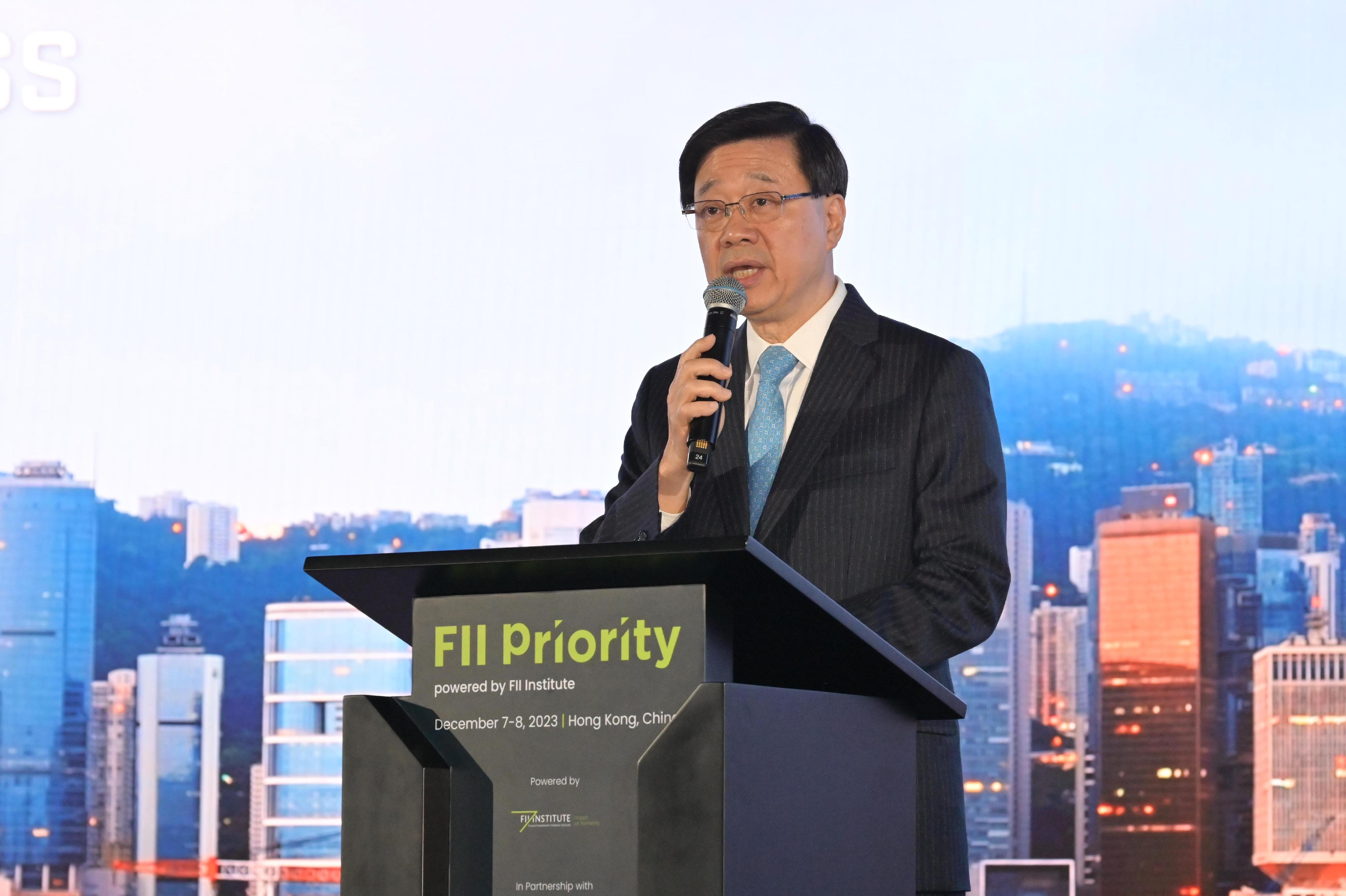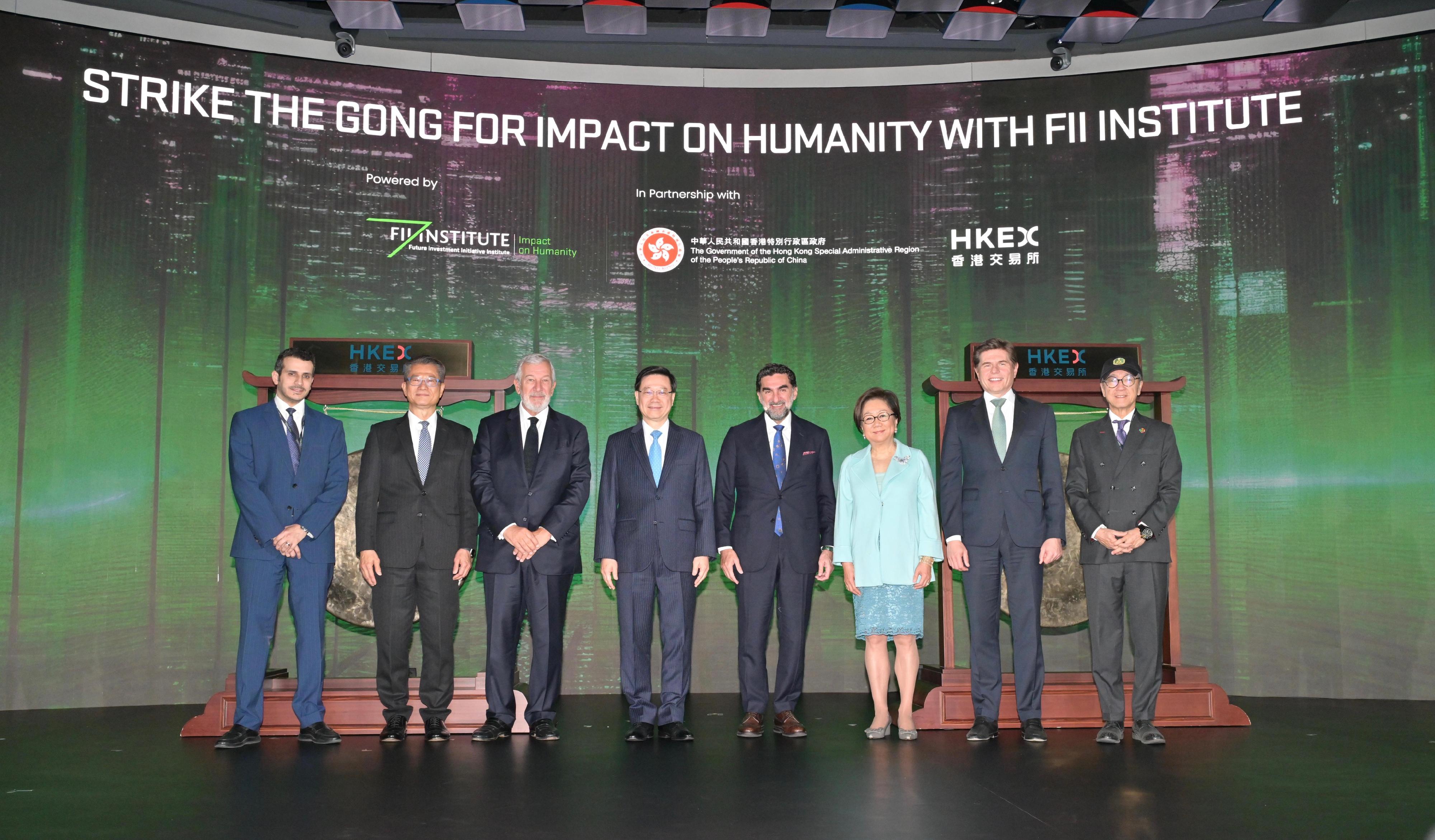Speech by CE at 2023 Colloquium on International Law (English only)
Following is the speech by the Chief Executive, Mr John Lee, at the 2023 Colloquium on International Law today (December 7):
Acting Commissioner Li Yongsheng (Acting Commissioner of the Office of the Commissioner of the Ministry of Foreign Affairs of the People's Republic of China in the Hong Kong Special Administrative Region), Ms Teresa Cheng (Co-Chairman of the Asian Academy of International Law), Dr Anthony Neoh (Co-Chairman of the Asian Academy of International Law), Professor Huang Jin (President of the Chinese Society of International Law), Consuls-General, ladies and gentlemen,
Good morning. It gives me great pleasure to speak to you today at the opening of the annual Colloquium on International Law. And I'm delighted to do so in person this year after COVID.
Yes, it's good to welcome you all to Hong Kong, once again. Good to know that you're here from so many professions, interests and backgrounds. All of you associated, in one way or another, with international law and Hong Kong's abiding role in its enduring principles and continuing practice.
I would first like to extend my gratitude to the Asian Academy of International Law, and the Chinese Society of International Law, for organising this important annual event.
I find the theme of this year's colloquium – "Navigating the Current International Legal Order" most opportune. Well, we say legal order, but you would know, in reality, the world is beset with disorder.
We face multiple challenges today in a global landscape and economy rife with complex legal and geopolitical concerns.
But as President Xi Jinping said at the recent Belt and Road Forum for International Cooperation, "humankind is a community with a shared future". And he added that "co-operation is the sure way to success in launching major initiatives that benefit all".
As we celebrate the 10th anniversary of the Belt and Road Initiative this year, I can assure you that the Hong Kong SAR Government is working to do just that: building an inclusive and interconnected community, one with a shared future, one that reaches out to the world.
Such co-operation contributes to a sound and effective international legal order. Hong Kong has the country's full support, under the National 14th Five-Year Plan, in advancing as a centre for international legal and dispute resolution services in the Asia‑Pacific region.
That means we are committed to participating in, and contributing to, the rule of law – locally, as well as globally.
We are well-placed to do so, to serve as a "super connector" and "super value-adder" between Mainland China and the rest of the world. That, of course, is thanks to the unique principle of "one country, two systems".
Long a global financial, trading and logistics centre, Hong Kong is also consistently rated among the top, internationally, in the rule of law.
Hong Kong ranked 23rd out of 142 countries and jurisdictions in the Rule of Law Index, published by the World Justice Project this year. That places us firmly in the top quintile of the world in this area.
As the only common law jurisdiction in China, our legal system resembles that of major international financial centres around the globe. Hong Kong's judicial system is internationally renowned, open and exercises its powers independently. Hong Kong's legal sector boasts enviable expertise in international legal, dispute resolution and deal making services.
These and other deeply engrained qualities reflect the rule of law practised in Hong Kong. They demonstrate how Hong Kong can play a valuable role in the development and maintenance of an effective international legal order. And I look forward to expanding our international exchange and collaboration in jurisprudence and legal services.
Hong Kong, of course, has a long and noteworthy history of co-operation with international legal organisations. We have wide-ranging experience in drawing on the strengths of East and West legal traditions, on serving as a conduit between the Chinese legal system and other international legal systems.
In the latest World Competitiveness Yearbook, Hong Kong topped the world in its rankings in "business legislation".
As an international trade centre, Hong Kong is committed to creating a legal infrastructure that enables traders in deal making. That is why, last December, the UN Convention on Contracts for the International Sale of Goods was fully implemented here in Hong Kong through local legislation.
Beyond encouraging deal making, the Convention reduces transaction costs. The Convention allows a uniform sales law to govern the bulk of international sales transactions done by Hong Kong's businesses. That enables them to trade with their overseas counterparts on a fair and level playing field, using a sales law familiar to both sides.
In my recent Policy Address, I announced the establishment of the Hong Kong International Legal Talents Training Academy. It will help us capitalise on Hong Kong's bilingual common law system and international status.
I believe it will also become a compelling asset in the development and maintenance of a sound international legal order.
Today's Colloquium on International Law is a prime example of the benefits we can gain through discussion, the exchange of ideas and the wealth of experience that fills this room.
On that note, I wish you all a rewarding Colloquium. I wish you, too, the best of business and health in the new year.
Thank you.

